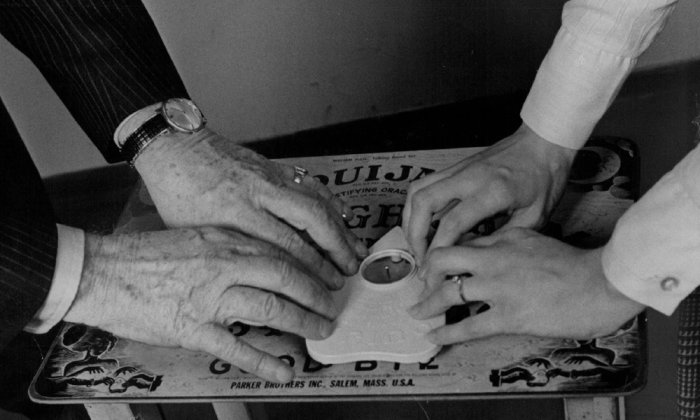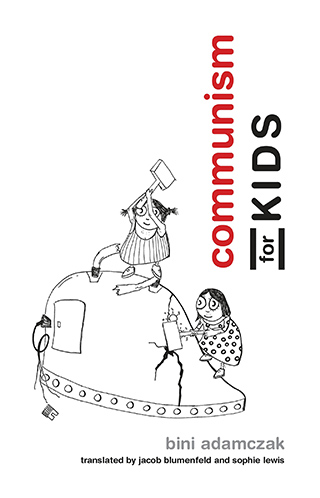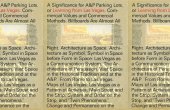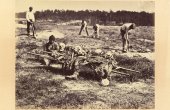Capitalism for Kids, or How We’re Ruled by What We Create

Capitalism exists today all over the world, and it’s called capitalism because capital rules. This isn’t the same as saying that capitalists rule, or that the capitalist class rules. In capitalism, there are certainly people who have more power than others, but there isn’t a queen who sits on a throne high above society and commands everybody. So if people no longer rule over society, who does? The answer may sound a little strange. Things do. Of course we don’t mean this literally, since things can’t do anything, least of all rule people. After all, they’re just things. And not all things have this power; only special things do. Or to put it better, only a special form of things do. These special things don’t fall from the sky or come flying down to Earth in UFOs shooting people with laser beams. They’re just the things that people create to make life easier, to serve them. Strangely, over time, people forget that they made those things, and soon enough, people begin to serve the things!

Imagine this: A girl walks over to a desk and writes down on a piece of paper, “Please drink a glass of water.” One or two hours later, she wanders by the desk again and finds that piece of paper. As she reads it this time, she forgets that she was the one who wrote it and thinks to herself that she should probably do what the paper says. Maybe she’s a bit skeptical at first, so she finds a friend and asks, “Do I really have to drink a glass of water right now? I’m not even thirsty.” The friend answers, “I don’t know. Here, let me have a look.” She reads what’s written on the piece of paper and tells the girl, “Yep, that’s what it says. You have to drink a glass of water.” If the girl walks by this piece of paper too often, she would get a terrible bellyache pretty quickly. And that’s how she ends up being ruled by things and suffering.
Sure enough, this sounds a bit odd. Why should she suddenly forget that she wrote that sentence? Why would she no longer recognize her own handwriting? In general, reality is a bit more complicated than it appears in this scene. People don’t live and work alone but rather in society together. In reality, it’s never just one person writing down a sentence; it’s lots of people writing things together. Let’s try a different example — the Ouija board (there’s a glass in this one, too). To play the game, a group of people sits in a circle around a board with a glass in the middle. All the letters of the alphabet are written on the board. Everyone puts a hand or finger on the glass, and because everybody is unconsciously trembling a tiny bit, the glass begins to move, as if pushed by an invisible hand, slowly, from one letter to the next. The people don’t realize that they moved the glass themselves, because their individual trembling could never have moved it alone. Instead, they think it was a spirit channeling some kind of message through them.
The Ouija board illustrates pretty well how life works under capitalism. As a matter of fact, the people playing the game are pushing the magically moving glass all by themselves, although not one of them could do it alone. The glass moves only because people act together rather than separately. But they don’t even notice they are cooperating. Their own cooperation happens secretly, behind their backs, so to speak. If those people instead consciously came together to think collectively about what they actually wanted to write, then the outcome would probably be very different. At least, there wouldn’t be any uncertainty about who wrote the text, that’s for sure. With the way things stand now, though, the text seems to be written by an invisible hand. And since no one can explain how it happened, they believe it was an alien power, like a spirit — or specter.
So you see, it’s not every kind of cooperation, every kind of group, or every kind of labor that gives things special powers over people. It’s only a special kind. The Ouija board fits, but writing collectively does not. Similarly, things don’t rule over every society; that only happens in a capitalist society. Only in capitalism do people relate to each other and work together in a way that leads to things ruling people. But what’s so special about the relationships between people under capitalism? What distinguishes them from the relationships people have with each other in different societies?
To answer these questions, let’s take a look at how capitalism first came about. When we do, we’ll see that capitalism has not always existed (which is already a big plus).
How Did Capitalism Arise?
Capitalism first developed in England around 500 years ago. At that time, feudalism still ruled, which means there were queens, princesses, and many maids. But most people were peasants. Peasants worked the fields in small village communes or together with their families. Since they had no machines and few inventions, they had to work a ton. Even though they worked so much, they were still poor. Even worse, the church, which was very powerful at that time, demanded every tenth piece of bread the peasants produced — and the princesses wanted even more than that! Every so often, the people had to go to the princesses’ courts and work there for several days. But they always knew exactly how much the rulers were taking away from them. Otherwise, they were pretty much left alone. You see, the princesses understood little about working, and so they couldn’t really tell the peasants how to do their work.
At the time, England was a great sea power with bustling trade missions all across the world. Many merchant ships left every morning from the English docks to Africa, Europe, and faraway lands like Asia and America. Since there weren’t many merchants with big enough ships and heavy enough artillery to do all this, the ones who had the ships did good business. They sailed, for example, to America, where they stole all the jewelry from the people living there and then sold it in Europe. Then they sailed to Africa, stole the people living there, and sold them in America. These merchants became rich and soon enjoyed a kind of luxury the princesses could never imagine even in their wildest dreams.
When the princesses saw how rich the merchants had become with their gigantic jewels and fancy swords, they grew jealous. They feared that the merchants, having become so economically powerful, would demand lots more political influence or even overthrow the princesses — which later, in fact, they did.
The princesses feverishly plotted how they, too, could become rich like the merchants. But the only thing they really owned was the land that the peasants lived on, and the turnips the peasants grew on the land never earned them much money. More money could be made with sheep’s wool, which was valuable at the time in Europe. And so the princesses called out to all their underlings and ordered them to stop growing turnips, and instead to breed sheep everywhere. Now as it turns out, it takes far less peasants to care for sheep than it does to grow turnips. And when sheep are everywhere, a lot less people can survive on the land. That’s how the vast majority of peasants became unnecessary.
The princesses cared little about what happened to the peasants, since they only had eyes for the merchants’ fancy swords and gigantic jewels. And so the princesses sent their soldiers to kick the peasants off the land where they had always lived and always worked. The soldiers were rude and hurt the peasants a lot. At first the peasants were pretty upset. Yet imagine how much sadder they became when they realized that they could never return back to their land — and that everything they had ever learned was now useless. None of them had any clue how to support themselves anymore. Since they didn’t know where else to go, they moved to the big cities. But when they arrived, they saw huge crowds of former peasants already living there — peasants who’d also been driven off their land. Without land, none of them could grow any food. And since they didn’t own anything, they had nothing to sell either. Of course, they could always steal, but then the police might catch and punish them. The only thing they still had was themselves. And so the people went to the factories and sold themselves.
Bini Adamczak is a Berlin-based philosopher and artist who writes on political theory, queer politics, and the past future of revolutions. She is the author of “Yesterday’s Tomorrow” and “Communism for Kids,” from which this article is excerpted.



